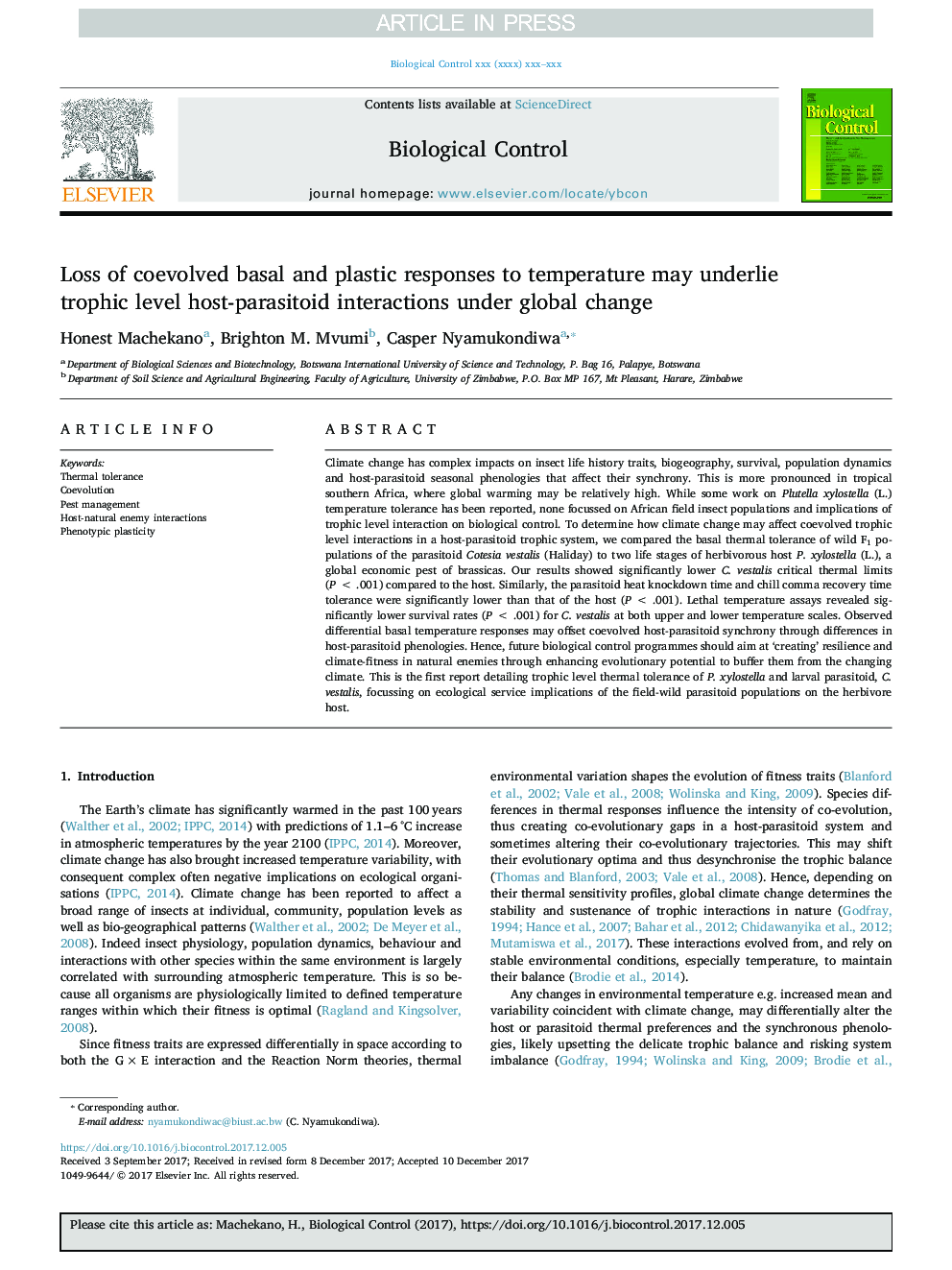| Article ID | Journal | Published Year | Pages | File Type |
|---|---|---|---|---|
| 8877724 | Biological Control | 2018 | 11 Pages |
Abstract
Climate change has complex impacts on insect life history traits, biogeography, survival, population dynamics and host-parasitoid seasonal phenologies that affect their synchrony. This is more pronounced in tropical southern Africa, where global warming may be relatively high. While some work on Plutella xylostella (L.) temperature tolerance has been reported, none focussed on African field insect populations and implications of trophic level interaction on biological control. To determine how climate change may affect coevolved trophic level interactions in a host-parasitoid trophic system, we compared the basal thermal tolerance of wild F1 populations of the parasitoid Cotesia vestalis (Haliday) to two life stages of herbivorous host P. xylostella (L.), a global economic pest of brassicas. Our results showed significantly lower C. vestalis critical thermal limits (Pâ¯<â¯.001) compared to the host. Similarly, the parasitoid heat knockdown time and chill comma recovery time tolerance were significantly lower than that of the host (Pâ¯<â¯.001). Lethal temperature assays revealed significantly lower survival rates (Pâ¯<â¯.001) for C. vestalis at both upper and lower temperature scales. Observed differential basal temperature responses may offset coevolved host-parasitoid synchrony through differences in host-parasitoid phenologies. Hence, future biological control programmes should aim at 'creating' resilience and climate-fitness in natural enemies through enhancing evolutionary potential to buffer them from the changing climate. This is the first report detailing trophic level thermal tolerance of P. xylostella and larval parasitoid, C. vestalis, focussing on ecological service implications of the field-wild parasitoid populations on the herbivore host.
Related Topics
Life Sciences
Agricultural and Biological Sciences
Agronomy and Crop Science
Authors
Honest Machekano, Brighton M. Mvumi, Casper Nyamukondiwa,
